TABLE OF CONTENTS
Cannabis plants contain over 400 chemical components, many of which work together to produce synergistic effects, known as “the entourage effect.”
Cannabinoids, terpenes, flavonoids, and other compounds work together to maximize health benefits and minimize adverse effects.
What Is the Entourage Effect?
Clinical research suggests that the interaction between cannabinoids, terpenes, and other chemical compounds in the cannabis plant can produce a more beneficial effect than taking one compound alone.
Many consumers are now focusing less on high THC content and more on a full spectrum of minor cannabinoids, terpenes, and other medicinal compounds.
Cannabis Compounds – Cannabinoids, Terpenes, and Flavonoids
Cannabis is a complex plant with hundreds of different compounds, some more medicinally active than others. While much of the focus is on THC and CBD, many other cannabis compounds can work with THC and CBD as a team to provide greater health benefits.
Cannabinoids
Phytocannabinoids, also known as cannabinoids, are naturally produced chemical compounds in the cannabis plant that interact with the body’s endocannabinoid receptors, part of the endocannabinoid system (ECS). The ECS regulates various functions, including sleep, memory, mood, and appetite.
THC and CBD are the most well-known cannabinoids and most commonly found in the plant. Minor cannabinoids such as cannabigerol (CBG), cannabinol (CBN), and cannabichromene (CBC), among others, make up a small concentration of the plant but can provide beneficial effects when paired with other cannabis plant compounds.
Terpenes
Terpenes are naturally occurring compounds found in plants, fruit, and herbs. They are responsible for a plant’s aroma and flavor. In cannabis strains, terpenes produce the plant’s complex smell and taste.
Flavonoids
Over 20 different flavonoids have been identified in cannabis plants. They are responsible for the colors and flavors of plants, including cannabis. Flavonoids also play a part in protecting plants from UV rays, diseases, and pests. Research has also shown that flavonoids may provide medicinal benefits.
Types of CBD Products
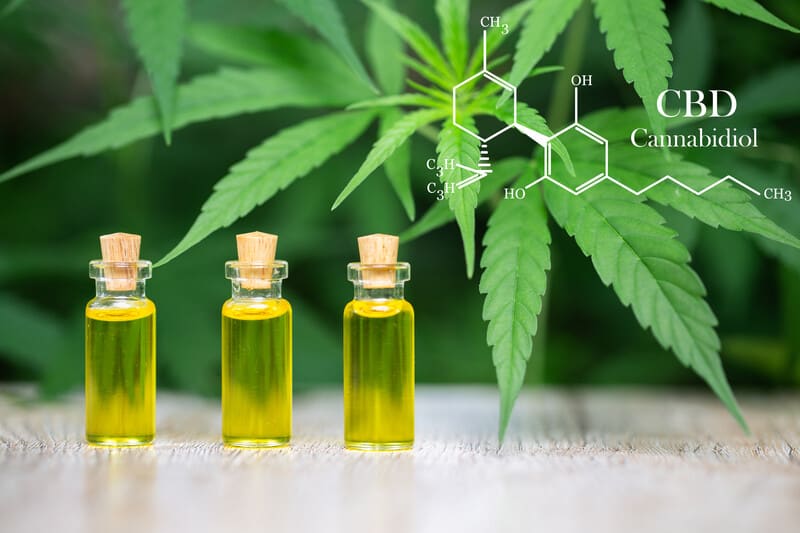
Cannabidiol (CBD) products have become wildly popular due to their non-intoxicating nature. However, there are several types of CBD oil products available. Each offers a different set of compounds. Depending on whether you want to feel high or not and experience the entourage effect, you will have a few options.
Broad-Spectrum
Broad-spectrum cannabis products contain all of the components in cannabis, except for THC. Broad-spectrum CBD is ideal for users who want to get the most out of cannabis without the intoxication or risk of failing a drug test.
Full-Spectrum
Full-spectrum CBD products contain the entire range of cannabis compounds, including THC and all other cannabinoids, terpenes, and flavonoids.
Isolate
Cannabinoid isolates contain just one cannabinoid. Cannabinoid isolates can contain up to 99 percent of a cannabinoid. Isolate products usually come in a powder or crystalline form.
Research on the Entourage Effect
The cannabis entourage effect was first discovered by researchers Raphael Mechoulam and Shimon Ben-Shabat in 1998.
They found that inactive compounds improved the therapeutic ability of the body’s primary endocannabinoids (naturally-produced compounds): 2-AG and anandamide. THC and CBD work just like these compounds.
In 2001, Ethan Russo and John McPartland published the paper, “Cannabis and Cannabis Extracts: Greater Than the Sum of Their Parts.” This research supported the “entourage effect” hypothesis.
Their research found that “secondary compounds in cannabis may enhance the beneficial effects of THC” and “may reduce THC-induced anxiety, cholinergic deficits, and immunosuppression.”
Researchers also stated that “cannabis terpenoids and flavonoids may also increase cerebral blood flow, enhance cortical activity, kill respiratory pathogens, and provide anti-inflammatory activity.”
In a 2011 review of studies, titled “Taming THC: potential cannabis synergy and phytocannabinoid-terpenoid entourage effects,” researchers found that consuming terpenes and cannabinoids together may be helpful for:
- Cancer
- Pain
- Anxiety
- Epilepsy
- Inflammation
- Fungal infection
In a 2015 study on CBD isolate effects were compared against effects from full-spectrum extracts. In the study, researchers found that mice treated with full-spectrum products experienced significantly more relief than those who only took CBD isolate.
In addition, researchers found that full-spectrum CBD did not lose efficiency with higher doses, while CBD isolate did.
Benefits of THC
- Pain
- Anxiety
- Nausea
- Low appetite
- Insomnia
- Glaucoma
- Muscle spasticity
Benefits of CBD
- Seizures
- Nausea
- Inflammation
- Migraine
- Depression
- Anxiety
- Inflammation
- Pain
Can You Take CBD or THC alone?
CBD and THC can be taken alone or together for medical and recreational purposes. However, research shows that taking CBD and THC together, along with all of the plant’s other active compounds, may be more beneficial than taking THC or CBD alone.
CBD has helped some people offset the adverse effects of high doses of THC like sleepiness, anxiety, and the “munchies.” The 2011 review also concluded that CBD might reduce THC’s side effects.
Cannabis Entourage Effect Recap
The entourage effect is a notion in cannabis science that describes the intricate interactions that can take place between the various compounds that are found within the cannabis plant.
It is believed that these interactions cause effects that are distinct from the effects of the substances when they are separated, and typically produce outcomes that are more favorable..
Cannabis Entourage Effect FAQ's
What is the entourage effect?
The entourage effect is a theory that proposes that the cannabinoids, terpenes, and other chemical components found in cannabis interact with one another in a way that results in a distinct collection of effects. It is possible that the therapeutic advantages of the plant are enhanced as a result of this interaction.
How does the entourage effect work in cannabis?
When it comes to cannabis, the entourage effect is achieved by the interaction of several substances, including THC, CBD, terpenes, and other cannabinoids, with the endocannabinoid system of the human body. It is possible that these interactions will increase or modify the impact of the separate components, which will ultimately result in results that are more balanced or effective.
Is there scientific evidence supporting the entourage effect?
Scientific study on the entourage effect is still ongoing, with results that are inconsistent. Several studies have indicated that particular combinations of cannabinoids and terpenes have the potential to boost therapeutic outcomes. However, other studies have indicated that additional research is required to completely comprehend the interactions between these compounds.
Which cannabinoids and terpenes are involved in the entourage effect?
Cannabinoids such as THC, CBD, CBG, CBN, and THCV are frequently implicated in this process. Additionally, it is believed that terpenes such as myrcene, limonene, pinene, and linalool play a role in the process. Every one of these molecules imparts a distinct set of effects, and the ways in which they interact can vary.
Does the entourage effect make cannabis more effective for medical use?
When it comes to medicinal applications, there are patients and researchers who feel that the entourage effect makes cannabis more successful. This is because the synergistic action of its ingredients may boost the therapeutic effects of cannabis. However, this is contingent upon the responses of the individual as well as the particular conditions that are being treated.
Can the entourage effect occur with CBD-only products?
Products containing simply CBD have the potential to produce an entourage effect if they also contain additional cannabinoids or terpenes that are not intoxicating. The effect, on the other hand, is more prominent in full-spectrum products, which contain a variety of cannabinoids of varying concentrations, including trace levels of THC.
How does the entourage effect differ between strains of cannabis?
Since the cannabinoid and terpene profiles of various cannabis strains are distinct from one another, the entourage effects of these strains are also distinct. Each of the three types of cannabis strains—indica, sativa, and hybrid—has a distinct makeup, which can have an impact on the entire experience as well as the possible therapeutic effects.
Can the entourage effect lead to more side effects?
The entourage effect has the potential to enhance therapeutic characteristics; however, it may also raise the intensity of certain adverse effects, such as drowsiness or anxiety, depending on the individual's sensitivity as well as the particular mix of chemicals.
How do I choose a cannabis product for the best entourage effect?
When selecting a product to optimize the entourage effect, it is important to take into consideration the cannabinoid and terpene profile that is tailored to your specific requirements. Products that cover the full spectrum are frequently recommended because they provide a more comprehensive entourage effect. Consultation with a medical expert who is well-versed in the use of cannabis is another recommended course of action.
Is the entourage effect the same for everyone?
The entourage effect does not work in the same way for each and every person. It is possible for the entourage effect to be experienced differently by different people because to variances in body chemistry, tolerance, and the particular condition that is being sought treatment for.
Is cbd still beneficial without thc?
Without the presence of tetrahydrocannabinol (THC), cannabidiol (CBD) can still contribute to positive effects. CBD, which is a chemical that is found in cannabis and does not produce euphoric effects, has garnered a lot of attention due to the possible health benefits it may offer. Some important things to keep in mind are as follows:
Advantages that are not psychoactive: CBD, in contrast to THC, does not result in the “high” that is often associated with the consumption of cannabis. Because of this, it is a more promising alternative for people who are looking for the therapeutic benefits of cannabis but do not want to experience its euphoric effects.
Anxiety, depression, chronic pain, epilepsy, and inflammation are just some of the disorders that have been investigated for their potential therapeutic applications. CBD has been explored for its ability to treat these conditions. A medicine called Epidiolex, which is based on CBD, has been given the green light by the FDA for the treatment of specific types of epilepsy.
Reduced Anxiety and Stress: There is evidence from a few studies that cannabidiol (CBD) may be able to assist reduce anxiety and stress. According to the theory, it interacts with the endocannabinoid system of the body and may have an effect on receptors that are involved in the regulation of mood.
Chronic pain, neuropathic pain, and inflammatory disorders are some of the most common types of pain that can be alleviated by CBD, which is also commonly used for pain management. Interacting with neurotransmitters and decreasing inflammation are two possible mechanisms by which it works.
Anti-inflammatory effects: CBD has been shown to have anti-inflammatory effects in a number of studies, which suggests that it may be useful for treating disorders such as arthritis and other inflammatory diseases.
Research has suggested that cannabidiol (CBD) may possess neuroprotective effects, which could be advantageous for the treatment of neurodegenerative disorders such as Alzheimer's disease and multiple sclerosis.
Topical CBD products are becoming increasingly popular for the treatment of skin problems such as acne, eczema, and psoriasis. This is mostly due to the anti-inflammatory and calming characteristics that CBD possesses.
Safety Profile: CBD has a favorable safety profile and is generally well accepted by health professionals. If there are any adverse effects at all, they are often minimal and may include things like diarrhea, changes in appetite, and weariness.
Considerations Regarding Legality and Availability: CBD products that are derived from hemp and contain very low amounts of THC are lawful in many areas and are more easily accessible than products that contain THC.
What is the CBD entourage effect?
It is a belief that cannabidiol (CBD) acts more effectively when it is accompanied by other natural components of the cannabis plant, as opposed to when it is used as a single ingredient. This is referred to as the CBD entourage effect. This idea is an offshoot of the more general entourage effect theory, which proposes that the many cannabinoids, terpenes, and other chemicals found in cannabis interact with one another in a synergistic manner to produce effects that are more substantial than any of them would be on their own.
What are the benefits of the entourage effect?
Cannabis researchers use the entourage effect to benefit from the synergistic interaction between cannabinoids, terpenes, and other chemicals. Synergy may boost the plant's components' medicinal effects. Here are some entourage effect benefits:
The entourage effect's main benefit is that it may boost cannabis' medicinal effects. Cannabinoids and terpenes may act better together than separately since they occur naturally in cannabis.
Improved Pain Management: Cannabis relieves pain. The entourage effect may make cannabis more effective at treating chronic and neuropathic pain.
Some study suggests that the entourage effect may reduce the psychoactive and other negative effects of THC, cannabis' main psychoactive ingredient. THC can cause anxiety and paranoia, whereas CBD may reduce these.
“
There are over 300,000 jobs in the cannabis industry. CTU trained me for one of them!

Makes $24.50 @ THC +
Wider Treatment Options: Cannabinoids and terpenes can be used to better treat certain medical ailments. Terpenes may boost cannabis anti-inflammatory or anti-anxiety effects.
Better Mood and Stress: Cannabis terpenes, fragrant chemicals, have therapeutic effects on mood and stress. Their interaction with cannabinoids may boost these effects.
The entourage effect may protect against neurodegenerative illnesses including Alzheimer's and Parkinson's, according to certain research.
Enhanced Bioavailability: Some cannabinoids and terpenes help each other be better absorbed and used by the body.
Tailored Medicine: The entourage effect allows cannabis medicine to be more tailored. To suit individual health demands, cannabinoid and terpene profiles can be used to choose strains and products.
Learn More About Cannabis at Cannabis Training University
While more research is needed into the entourage effect, studies find that full-spectrum products are better than isolates.
However, isolates can help several others who can’t consume THC but still want the plant’s medical benefits.
For the latest information about cannabis’ medicinal properties, cannabinoids and terpenes, and the endocannabinoid system, enroll in Cannabis Training University’s online cannabis training program today.

Fred Hernandez
Fred Hernandez is a highly accomplished and versatile writer, boasting an extensive background in the cannabis industry. With an in-depth understanding of various sectors including cultivators, processors, retailers, and brands, Fred's expertise spans across the entire cannabis landscape. As a prominent contributor to CTU, he consistently delivers insightful articles exploring the latest developments, news, and regulations shaping the cannabis industry. Whether it's delving into the intricacies of cannabis products, cannabis strain reviews, or providing comprehensive analyses of cannabis laws, or sharing expert insights on cannabis cultivation techniques, Fred's wealth of knowledge positions him as an invaluable writer and educator for all cannabis-related subjects.


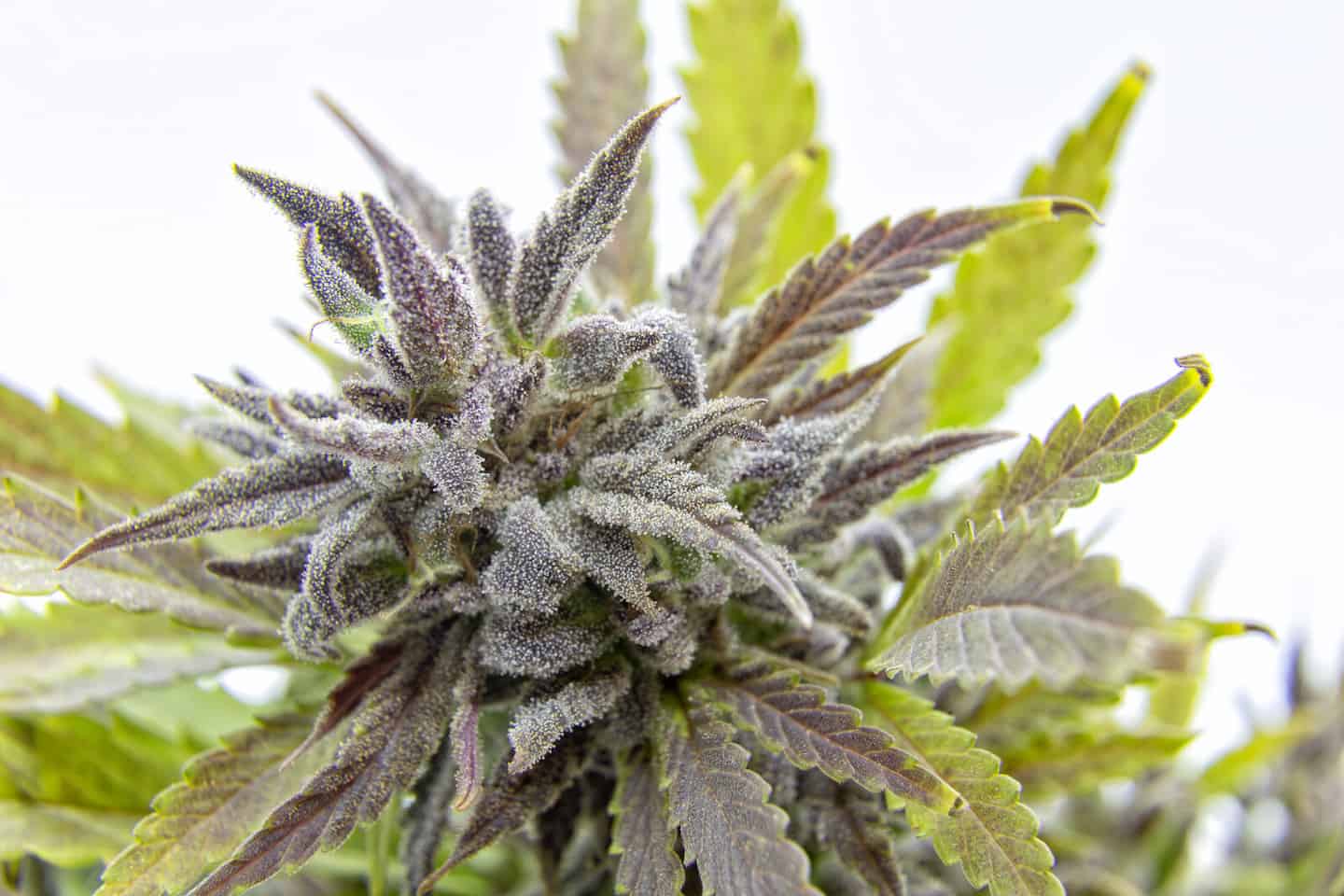
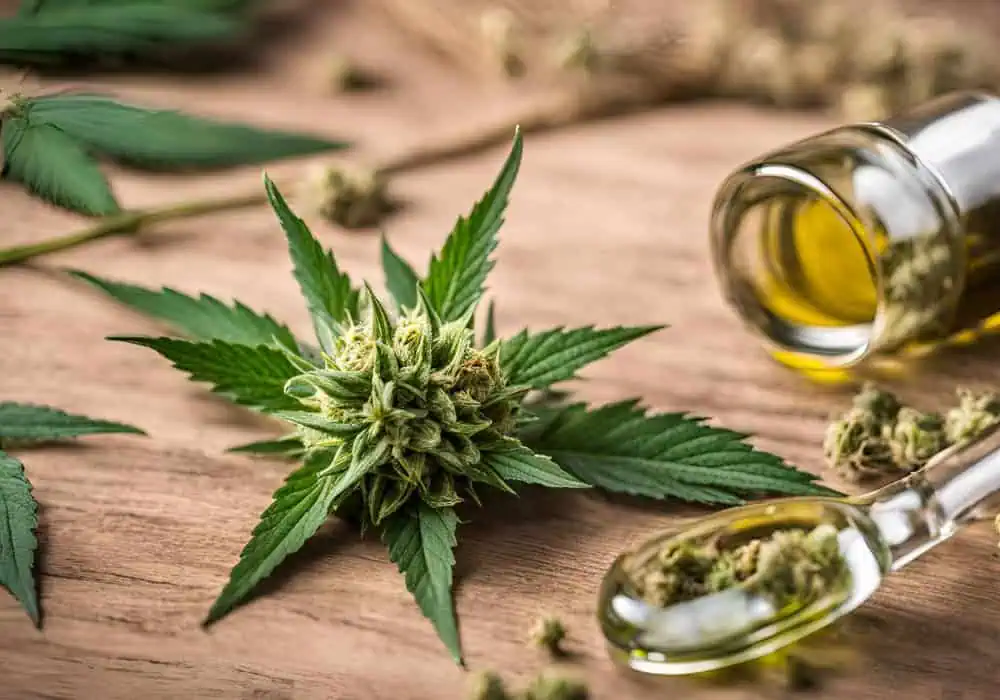


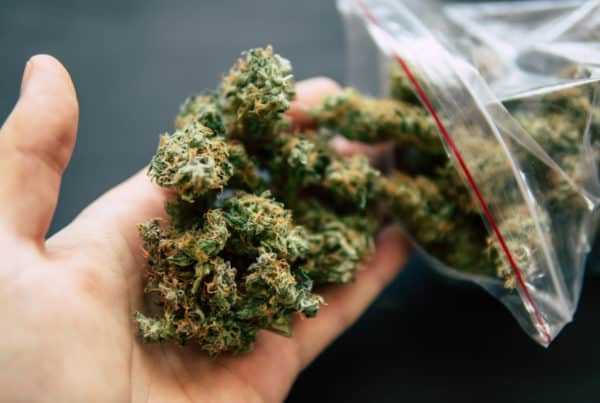
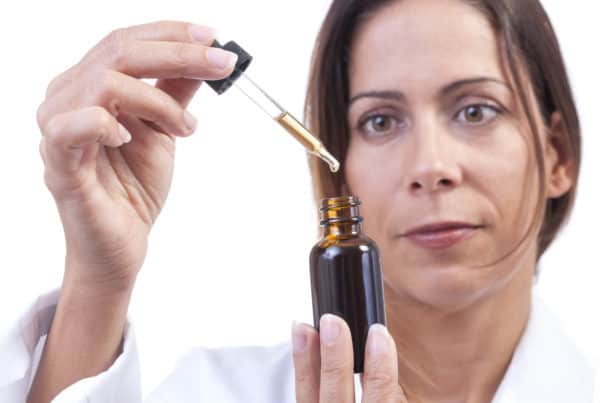
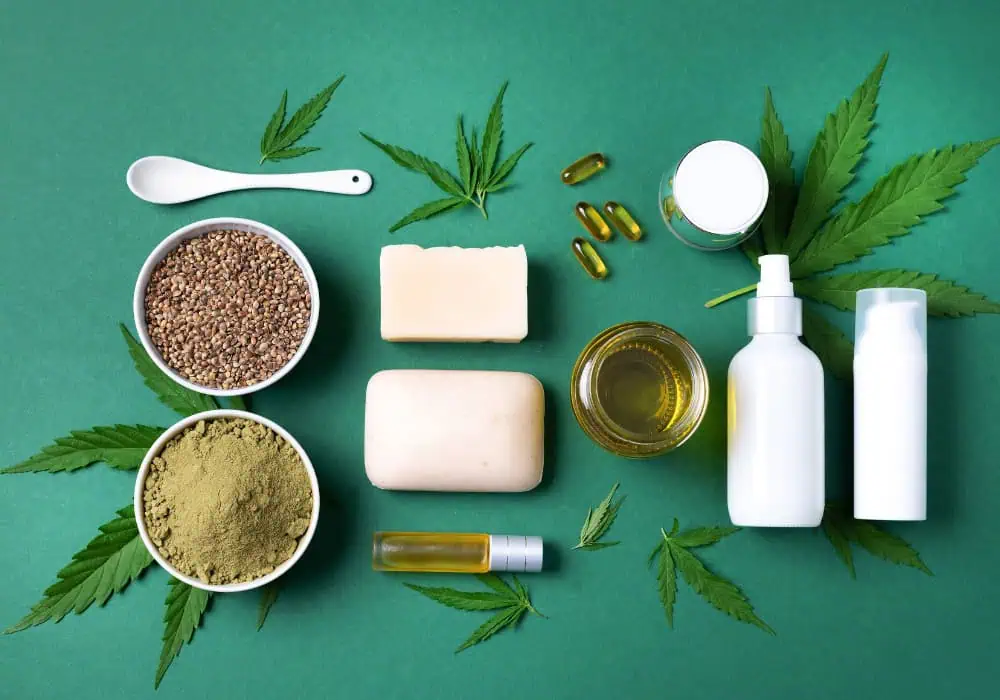
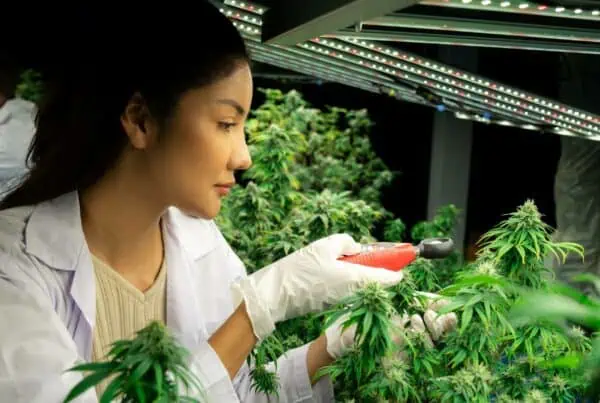
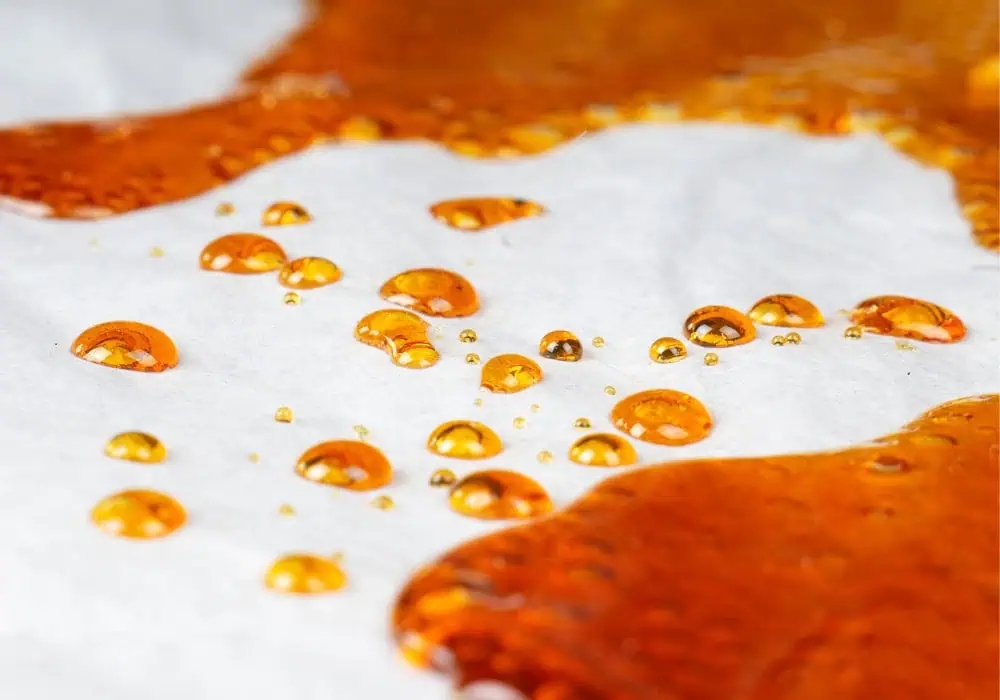

 Jeff was involved in an accident where he endured a traumatic brain injury. He had a week-long stay in ICU where brain surgeons
Jeff was involved in an accident where he endured a traumatic brain injury. He had a week-long stay in ICU where brain surgeons  100% risk free money back guarantee within 48 hours after purchase if student has not completed any of the courses or exams.
100% risk free money back guarantee within 48 hours after purchase if student has not completed any of the courses or exams.